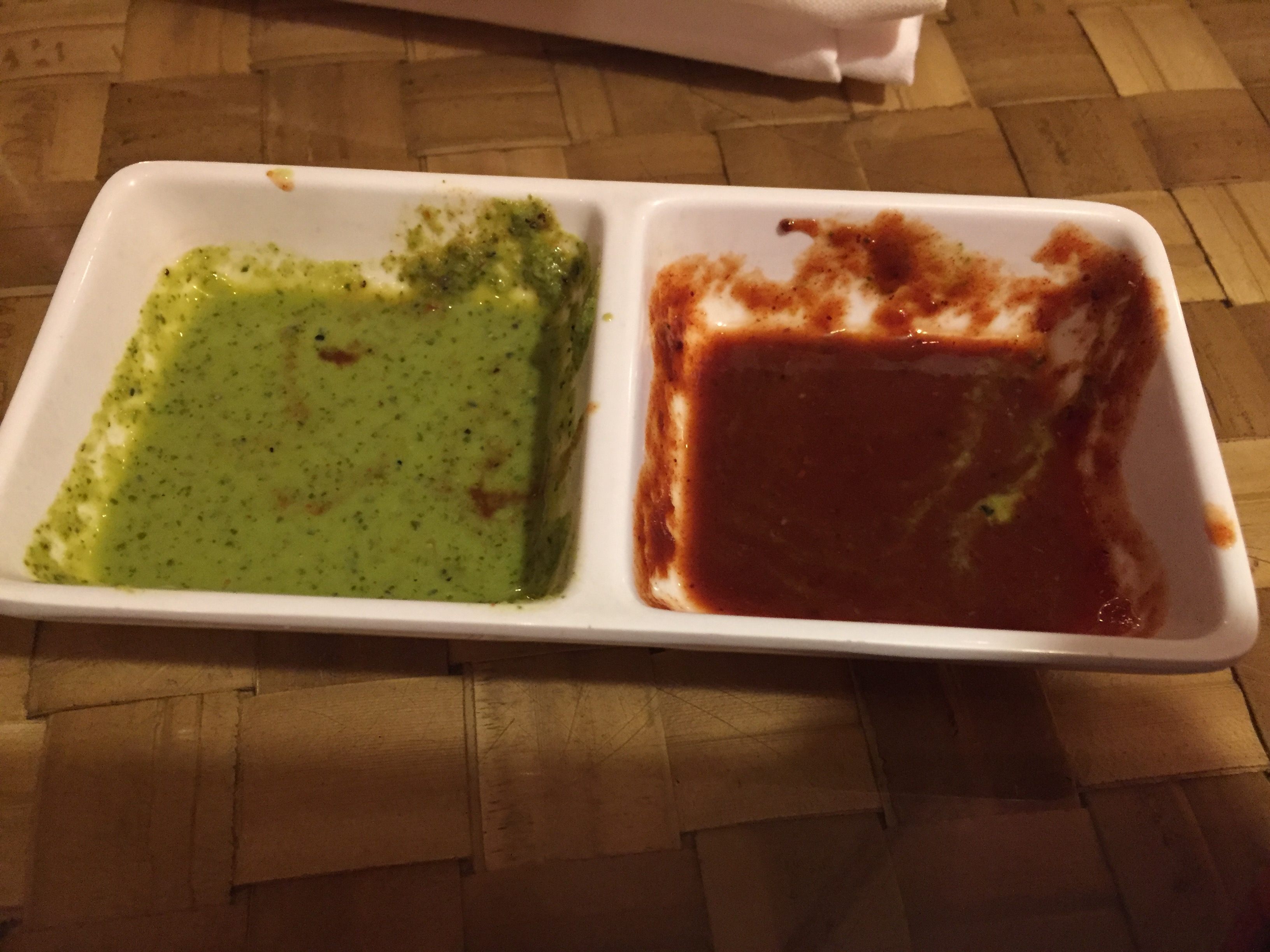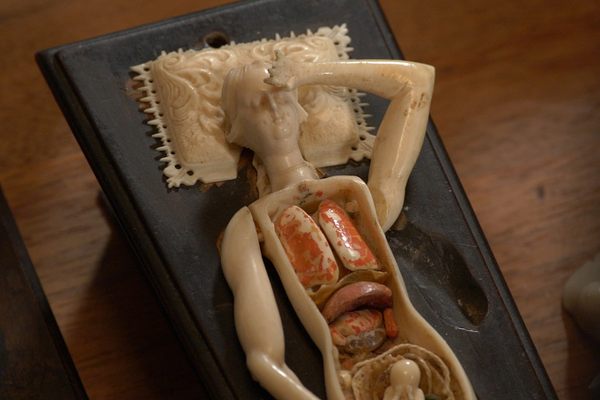Surgery’s Open Secret: It Smells
The patient never knows what odors come from inside.

Masks will be very important later on in this post! (Photo: Phalinn Ooi/CC BY 2.0)
Here’s something most people don’t know about surgery—at a certain point in an operation, it can smell. Really bad.
My knowledge of this fact came by accident, when I was about 11 and my surgeon father let me attend one of his operations. But most people experience operating rooms remotely—they’re watching one on a TV or movie screen—or when they’re about to be knocked out by anesthesia. The room is so organized and sterile that it’s hard to imagine it smelling like anything.
But once a procedure begins, the surgeon has to cut into the patient’s body. To do that, the doctor slices through the skin with a scalpel, then, as a general rule, switches to an electric cautery. This tool has a tip of metal that gets incredibly hot—a “low-temp” cautery has the capacity to reach hundreds of degrees. The surgeon uses this tool to slice through the body’s layer of fat and, sometimes, through muscle, to reach the part of the body they’re operating on.
There’s a good reason to use a cautery. By sealing off small blood vessels, it limits bleeding. While it’s in use, though, the operating room begins to smell of burning flesh.
In my own memory, this smell is nauseating and overpowering. (I had to leave the operating room soon after this part of the surgery started because I couldn’t handle it.) Cutting through the body creates smoke, and I remember the smell as something like the smell of burning hair, but worse. Way worse.

An electrocautery. (Photo: SnowBink/CC0)
If you ask a surgeon about this smell, though, most likely they’ll tell you it’s not that big of a deal. For them, it’s not. They get used to it. Some even say it smells good—like barbecue or, if they’re cutting through fat, like “a sizzling New York Strip.”
But for the uninitiated? It can be disgusting.
In addition to the smell of burning flesh, another notable smell, in some surgeries, is the smell of cutting through bone, which, apparently, also smells like burning hair. Beyond that, in many surgeries, there aren’t any particularly strong smells. Blood has a metallic smell to it. Bile has a smell, but it’s not a particularly strong one. Cancerous growths don’t smell like anything in particular (although dogs can be trained to smell certain markers in human urine). Brains don’t smell, either.
There are certain surgeries, though, that even surgeons think smell bad.
As a rule, these are surgeries that involve dead or rotting tissue, some sort of closed system where bacteria, pus and so forth have been trapped or the bowel. Gas gangrene, in which bacteria infects and kills tissue with particular vigor, reeks. Peritonitis, an infection of the abdomen, is said to smell “pretty much like a rotting corpse.” Partially digested blood is also not something anyone wants to catch a whiff of.
One recent night, out to dinner at an Indian restaurant, when I had asked my dad to give some examples of particularly bad-smelling surgeries, one family member pointed to a dark brownish-red dipping sauce and asked if that color, seen in a surgery, might be a sign of an abnormally gross smell. My dad said no, and pointed to the one right next to it—a bright green mint sauce.
That was the sort of color that you’d really need to worry about, he told us.

So gross, I know. (Photo: Sarah Laskow)
Such green might feature in a perirectal abscess, in which pus collects in the tissue around the anus. To treat it, a surgeon will lance the abscess, to release everything collected inside. As you open it, you can often see pus that’s green and white and mixed with the red of blood. (If you are interested in seeing such grossness for yourself, there are videos online.) The odor hits you at the same time.
Fournier’s gangrene also has a reputation for being nasty smelling. Gangrene of any kind can have a foul smell; this type is “a genital catastrophe” that affects a person’s perineum or genital region and can be life-threatening. It’s more common in men, but not exclusive to them, and essentially it involves dead flesh all around the parts of the body that are most likely to smell rank to begin with. The treatment involves both antibiotics and surgery to remove the dead flesh.
The smell? One medical student described it as “like poop and sewage sludge and rot and dead stuff all rolled into one.”
Another notoriously stinky surgery involves dealing with dead bowel. This is pretty much what it sounds like: the blood supply is, for one reason or another, cut off from part of the bowel, and a section of it dies. To the eye, it’s dark black, when it should be fleshy and pink. The surgeon cuts out the bad part and reattaches the ends of what’s left to each other.
One doctor describes the smell of dead bowel as “the worst possible smell.” It’s basically is the combination of two smells: the smell of stool and the smell of dead flesh. (Ever a smell a dead mouse? Dead flesh is sort of like that.) It also infuses everything.
“The smell seems to permeate through the gown and gloves and onto your hand,” says my dad. “It just stays with you. It lingers. It’s an overwhelming stench that sticks to you.” Double up on gloves, wash your hands as many times as you want, and it makes no difference. That smell is not going away.
This is part of the job, though, and for the people undergoing the operations, it’s better to have all this gross-smelling stuff out of their bodies. How do surgeons (not to mention all the other medical professionals in the operating room) deal with the bad smells? There’s a simple trick: a drop, or a few, of something strong and more pleasant-smelling on the surgical mask everyone’s wearing anyway. Vicks vapor rub, oil of wintergreen or benzoin tincture usually do the trick.














Follow us on Twitter to get the latest on the world's hidden wonders.
Like us on Facebook to get the latest on the world's hidden wonders.
Follow us on Twitter Like us on Facebook